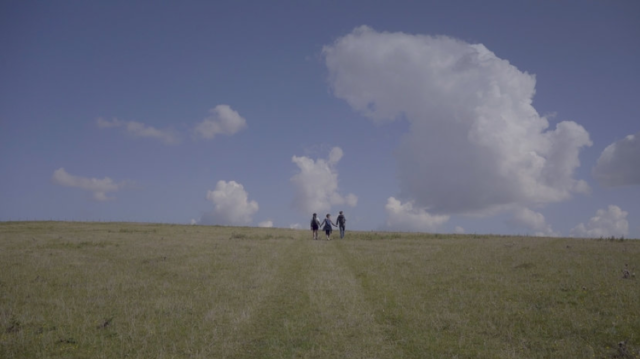The London Film Festival (10-21 October 2018) explores children and adolescents’ mental health
Review by Dr Khalid Ali, Film and Media Correspondent.

The 62nd British Film Institute (BFI) London Film Festival (LFF) returns in October with a selection of thought-provoking films from 75 countries. It is indeed a ‘globally diverse event’ as highlighted by its artistic director, Tricia Tuttle. A most compelling feature of this year’s program is its focus on the mental health of children and adolescents. Five films stand out as must-see viewing for their outstanding story-telling, sensitive handling of difficult subjects and ability to instil empathy in viewers’ hearts and minds.
Beautiful Boy, directed by Felix Van Groeningen, USA 2018, explores the harsh world of teenage drug addiction through a father-son relationship. The film is based on the real-life memoirs of journalist David Sheff Beautiful boy: A father’s journey through his son’s addiction, and Tweak: Growing up on Methamphetamines by his son Nic Sheff. The physical and psychological decline of a teenager following addiction to marijuana and crystal meth is heart-breaking. It is an eye-opener and timely reminder of the plight of a generation of youth locked in a world of dependency and destitute. Watch the trailer here.
Capernaum, directed by Nadine Labaki, Lebanon 2018, follows Zain, a young Lebanese boy from a poor family who confronts his parents in a highly-publicized law court holding them responsible for inflicting upon him a life of misery by bringing him into this world. The film dissects the socio-political dimensions of child neglect, and subsequent psychological trauma. It is a film of great depth and wit that was awarded by the Palm D’or in Cannes Film Festival in May 2018. In her acceptance speech at Cannes, Labaki calls for world citizens to assume responsibility for the deteriorating status of children welfare worldwide. Watch the trailer here.
Wildlife, directed by Paul Dano, USA 2018, follows Joe, a teenager in 1950’s America who is trying to salvage the failing marriage of his mum and dad. After his father leaves the family house searching for work, Joe is forced to act as the man of the house while his mother is struggling with loneliness and poverty. In a poignant scene, Joe wants to reassure his mother saying: ‘Don’t worry mum, dad will be fine’. Mum says: ‘What about me?’ Joe has no clue how to respond, and says ‘You’ll be fine too’. The role reversal of a child acting as his parents’ guardian, and how this impacts on his well-being is sensitively portrayed. Watch the Wildlife trailer here.
Dear Son (Arabic: Weldi), directed by Mohamed Ben Attia, Tunisia 2018, is a dissection of family life torn apart by a son’s grave decision. Sami, son of hard working Riadh and Nazli, is suffering from horrific migraines. As an only son, his parents spare nothing to find a cure for his unexplained affliction. When Sami escapes from home leaving a note saying he has flown to Syria, the tragic consequences of ‘youth angst’ begin to unravel. Generations of young men and women joining extremist groups is an escalating problem with universal ramifications. Watch the Dear son trailer here.
Evelyn, directed by Orlando von Einsiedel, UK 2018, is a masterpiece of a documentary film. It follows Orlando revisiting the painful memories of his younger brother’s Evelyn tragic suicide at the age of 18 after a diagnosis of schizophrenia and severe depression. Thirteen years after Evelyn’s death, Orlando organises a hiking journey through the Lake District with his siblings, his mother and father and two of Evelyn’s friends. Through frank conversations and introspective navel-gazing, Orlando and company share their feelings of sorrow, frustration and guilt, in an attempt to find closure, and solace.
These films analyse several predisposing factors for adolescent mental health problems: dysfunctional families, poverty, drug addiction, and religious extremism as well as the impact of mental illness on families. A recent editorial in the BMJ by David Gunnell highlighted that ‘generation Z- young people born in mid 1990s and 2000s’ are facing an epidemic of mental health disorders. Gunnell suggests that a ‘a whole population approach is required, including schools, universities, workplaces, job centres and homes, so that emotional wellbeing and mental health becomes the foundation of our children’s experiences throughout life’s stages and transitions’. I add to that whole population approach film as a powerful medium through which issues relating to mental health can be openly discussed. The LFF is a good place to start.